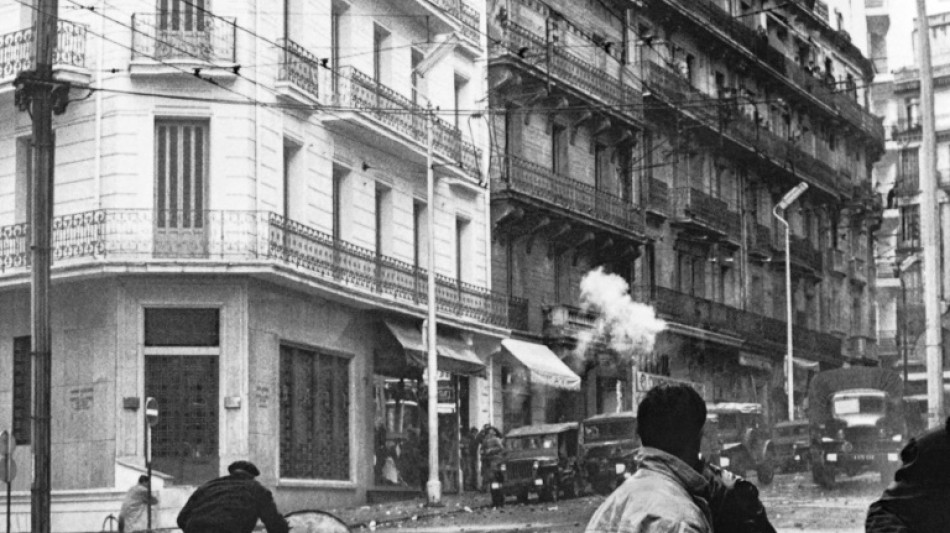
-
 'Great honor': world leaders welcome first US pope
'Great honor': world leaders welcome first US pope
-
Pacquiao to un-retire and fight Barrios for welterweight title: report

-
 Trump unveils UK trade deal, first since tariff blitz
Trump unveils UK trade deal, first since tariff blitz
-
Man Utd one step away from Europa League glory despite horror season

-
 Jeeno shines on greens to grab LPGA lead at Liberty National
Jeeno shines on greens to grab LPGA lead at Liberty National
-
Mitchell fires PGA career-low 61 to grab Truist lead

-
 AI tool uses selfies to predict biological age and cancer survival
AI tool uses selfies to predict biological age and cancer survival
-
Extremely online new pope unafraid to talk politics

-
 Postecoglou hits back as Spurs reach Europa League final
Postecoglou hits back as Spurs reach Europa League final
-
Chelsea ease into Conference League final against Betis

-
 Pope Leo XIV: Soft-spoken American spent decades amid poor in Peru
Pope Leo XIV: Soft-spoken American spent decades amid poor in Peru
-
First US pope shared articles critical of Trump, Vance

-
 'Inexcusable' - NBA champs Boston in trouble after letting big leads slip
'Inexcusable' - NBA champs Boston in trouble after letting big leads slip
-
US automakers blast Trump's UK trade deal

-
 Stocks mostly rise as US-UK unveil trade deal
Stocks mostly rise as US-UK unveil trade deal
-
Trump presses Russia for unconditional 30-day Ukraine ceasefire

-
 Anything but Europa League glory 'means nothing' for Man Utd: Amorim
Anything but Europa League glory 'means nothing' for Man Utd: Amorim
-
'Inexcuseable' - NBA champs Boston in trouble after letting big leads slip

-
 Pope Leo 'fell in love with Peru'and ceviche: Peru bishop
Pope Leo 'fell in love with Peru'and ceviche: Peru bishop
-
Pakistan's T20 cricket league moved to UAE over India conflict
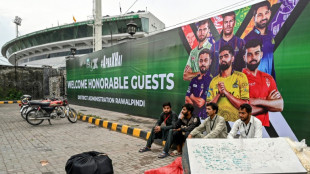
-
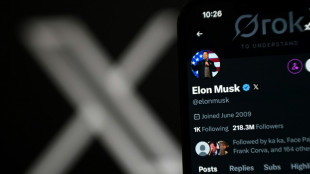 India tells X to block over 8,000 accounts
India tells X to block over 8,000 accounts
-
Germany's Merz tells Trump US remains 'indispensable' friend
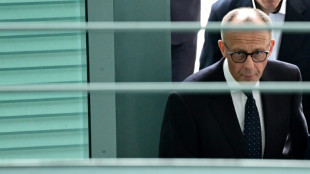
-
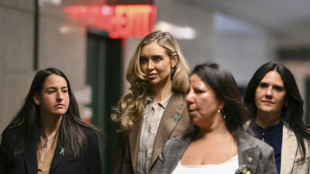 Ex-model testifies in NY court that Weinstein assaulted her as a minor
Ex-model testifies in NY court that Weinstein assaulted her as a minor
-
Chelsea ease past Djurgarden to reach Conference League final

-
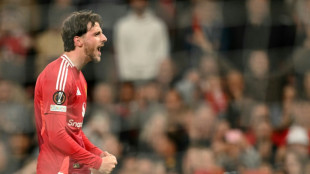 Man Utd crush Athletic Bilbao to set up Spurs Europa League final
Man Utd crush Athletic Bilbao to set up Spurs Europa League final
-
Spurs reach Europa League final to keep Postecoglou's trophy boast alive
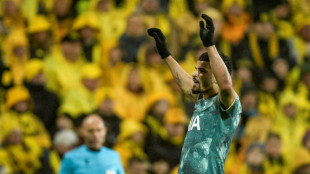
-
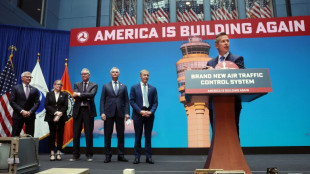 US unveils ambitious air traffic control upgrade
US unveils ambitious air traffic control upgrade
-
US climate agency stops tracking costly natural disasters
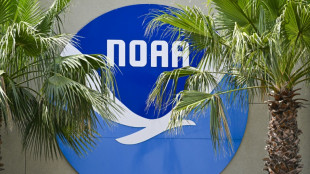
-
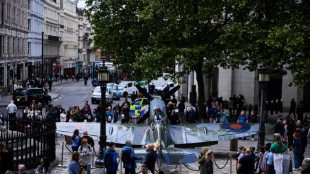 Germany slams Russian 'lies', France warns of war 'spectre' in WWII commemorations
Germany slams Russian 'lies', France warns of war 'spectre' in WWII commemorations
-
'A blessing': US Catholics celebrate first American pope
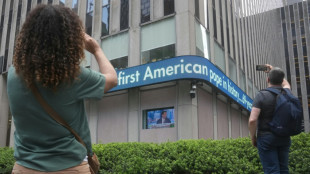
-
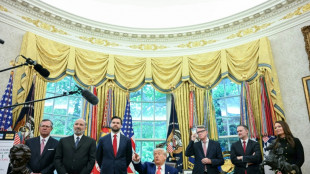 Trump hails 'breakthrough' US-UK trade deal
Trump hails 'breakthrough' US-UK trade deal
-
Cardinals elect first American pope as Robert Francis Prevost becomes Leo XIV
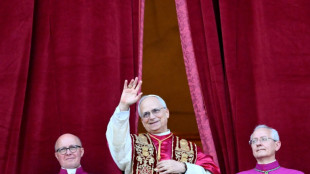
-
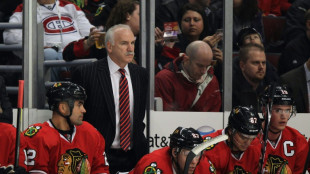 NHL Ducks name Quenneville as coach after probe into sex assault scandal
NHL Ducks name Quenneville as coach after probe into sex assault scandal
-
'Great honor': Leaders welcome Leo, first US pope
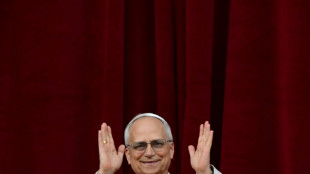
-
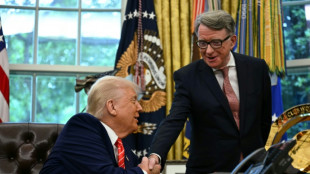 What is in the new US-UK trade deal?
What is in the new US-UK trade deal?
-
MLB Pirates fire Shelton as manager after 12-16 start
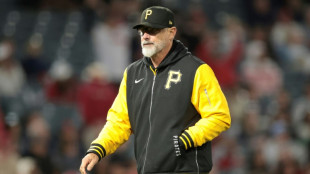
-
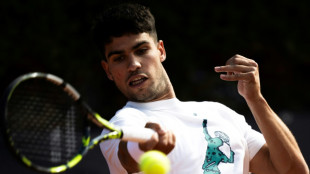 Alcaraz '100 percent ready' for return to action in Rome
Alcaraz '100 percent ready' for return to action in Rome
-
Prevost becomes first US pope as Leo XIV
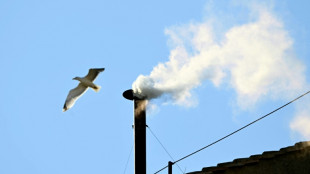
-
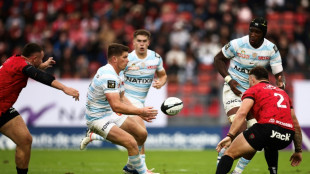 Andy Farrell holds out hope for son Owen after Lions omission
Andy Farrell holds out hope for son Owen after Lions omission
-
Roglic leads deep field of contenders at tricky Giro d'Italia

-
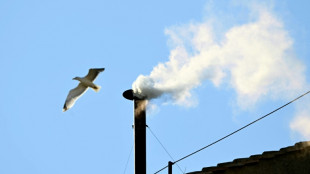 White smoke signals Catholic Church has new pope
White smoke signals Catholic Church has new pope
-
Bill Gates speeds up giving away fortune, blasts Musk
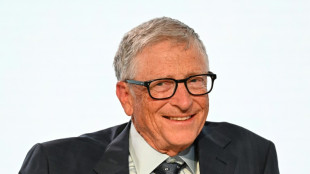
-
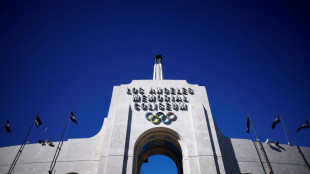 LA Coliseum, SoFi Stadium to share 2028 Olympic opening ceremony
LA Coliseum, SoFi Stadium to share 2028 Olympic opening ceremony
-
Trump unveils 'breakthrough' US-UK trade deal
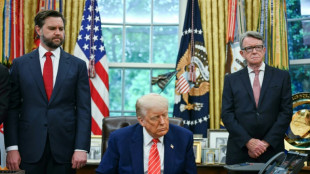
-
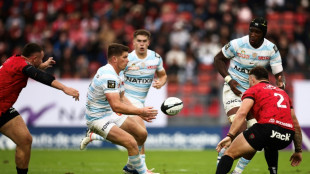 Andy Farrell holds out hope for Owen Farrell after Lions omission
Andy Farrell holds out hope for Owen Farrell after Lions omission
-
Trump calls US Fed chair 'fool' after pause in rate cuts
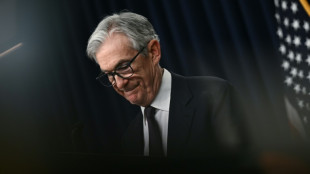
-
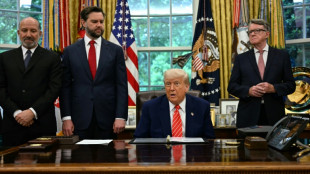 Stocks rise as US-UK unveil trade deal
Stocks rise as US-UK unveil trade deal
-
UN says Israel school closures in east Jerusalem 'assault on children'
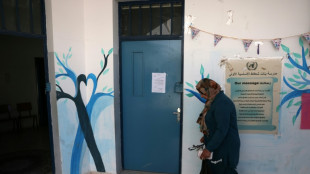
-
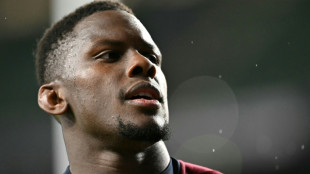 Itoje grateful for 'tremendous honour' of leading Lions in Australia
Itoje grateful for 'tremendous honour' of leading Lions in Australia
-
Cardinals to vote anew for pope after second black smoke
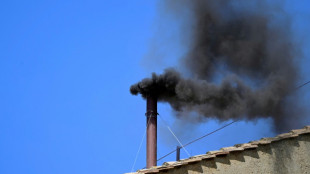

Algeria's 60 years of complex relations with former occupier France
In the 60 years since Algeria won independence from France, it has gone through multiple crises with its former occupier, often fuelled by domestic politics.
Yet the two sides had surprisingly good relations for the first four decades, and it was only in the 1990s that things started to fall apart, experts say.
"Generally, despite appearances and criticism, there has been a stable, very balanced relationship," said Luis Martinez, a Maghreb researcher at Sciences Po university in Paris.
That is despite the devastation caused by the eight-year war of independence that finally led to the signing of the Evian accords on March 18, 1962, ending the conflict.
French historians say half a million civilians and combatants died -- 400,000 of them Algerian -- while the Algerian authorities insist 1.5 million were killed.
Under French General Charles de Gaulle, whose administration signed the accords, and his successor Georges Pompidou, Paris had good relations with Algiers.
The same was true of the administration of Francois Mitterrand, even though he had been interior minister when Algeria's armed independence struggle began in 1954 and remained opposed to the country's independence.
"Mitterrand was surrounded by Socialist Party people, who were all pro-FLN," said historian Pierre Vermeren, referring to the National Liberation Front, which led the revolt and has dominated Algerian politics ever since.
"(Mitterrand) was able to take a back seat" and let others deal with Algeria, said Vermeren, a professor at the Sorbonne University.
France was allowed to continue its nuclear tests in the Algerian Sahara until 1967, and de Gaulle managed to negotiate a secret deal with the new Algerian state to allow for chemical weapons tests until 1978.
But in 1992, Paris raised hackles by criticising Algiers for suspending elections, in which Islamist parties had won the first round.
Algeria withdrew its ambassador in response.
The polls' cancellation sparked another decade of devastating conflict in the North African country, until Abdelaziz Bouteflika, who rose to the presidency in 1999, offered an amnesty that paved the way for peace.
Despite being close to France, Bouteflika made use of anti-French discourse, primarily for domestic consumption, Vermeren said.
"To win back control of the ideological and political sphere after the civil war, (the Algerian leadership) 'forgot' that France had helped them fight the Islamists," he said.
"They went back to their traditional enemy."
- 'Good ties in secret' -
Under Bouteflika, Algerian leaders used ever-stronger language, accusing France of "genocide" during its more than 130-year occupation of Algeria.
Then, in 2019, a vast protest movement toppled the autocratic leader after two decades in power -- but the new regime has kept up the anti-French discourse.
Observers say however that cooperation behind closed doors has been surprisingly close.
In 2013, Algeria allowed French forces to use its airspace to reach Mali, where they were battling jihadists.
"French-Algerian relations are good when they're in secret. They're more hostile when they're in public," said Naoufel Brahimi El Mili, who has written a book on 60 years of "secret stories" between the two countries.
When Emmanuel Macron became president, he had good relations with Algeria.
Visiting Algiers during his campaign in February 2017, he described colonisation as a "crime against humanity".
After his election, he made gestures aimed at healing past wounds on both sides of the Mediterranean.
But he refused to apologise for colonialism, a highly sensitive topic in France, which for decades saw Algeria as an integral part of French territory and where far-right discourse has been escalating.
Comments reported last October dampened hopes around reconciliation.
Macron accused Algeria's "political-military system" of rewriting history and fomenting "hatred towards France".
In remarks to descendants of independence fighters, reported by Le Monde, he also questioned whether Algeria had existed as a nation before the French invasion in the 1800s.
Once again, Algeria withdrew its ambassador.
- 'Algeria votes Macron' -
Now, weeks ahead of the French presidential election in April, relations appear to be looking up again.
Millions of French citizens of Algerian origin and descendants of Europeans who left after independence are among those casting votes.
"Algeria will vote for Macron," said author El Mili. "Algerians are convinced that a Macron II will be bolder."
Xavier Driencourt, a former French ambassador to Algeria, shared that view.
"They don't want (candidate) Valerie Pecresse who has a fairly right-wing tone, and definitely not (Eric) Zemmour or Marine Le Pen," he said, referring to conservative Pecresse and two far-right presidential hopefuls.
But much remains to be done. In recent years Algeria has diversified its international ties, with China becoming its main trade partner.
Martinez from Sciences Po said Macron's comments had done a lot of damage.
"They'll go back to the drawing board, and try to see what they can agree on," he said.
Former envoy Driencourt said "it takes two sides to have a relationship".
Would Algeria be interested after the election?
"I'm not very optimistic," he said.
L.Durand--AMWN